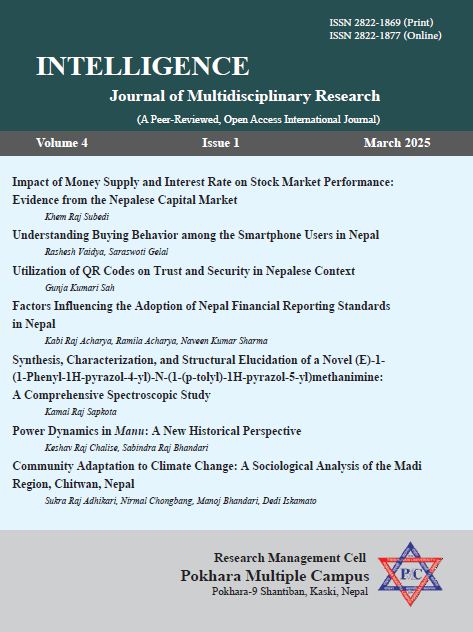Power Dynamics in Manu: A New Historical Perspective
DOI:
https://doi.org/10.3126/ijmr.v4i1.76933Keywords:
Cultural poetics, Manava Dharma, Manu law, mythical narratives, power dynamicsAbstract
This study aims to examine how Manu legitimizes authority and social order and analyze how his stories shape cultural values and beliefs over time, functioning in literary texts and historical documents. Manu is a mythical figure in Hindu tradition. He has been studied as a lawgiver among Hindu believers. His laws are part of cultural practices and also there are some questions about his stories and doctrines. Based on the concepts set on mythical and cultural aspects of Manu tradition, this study examines the novel, Manu and Manu culture using the new historical perspective of power dynamics. This research further tries to see and reinterpret these narratives as cultural poetics, where myths shape societal norms and behaviors, rooted in historical circumstances. It implies the ideas of Manu culture and the novel Manu to examine how Manu codifies social norms and human cultural landscapes. However, interpretations vary with debates on their historical context and relevance regarding cultural hegemony and power dynamics. Implying the New Historicism, this research article concludes that Manu, in both myth and the novel, Manu, embodies a dynamic interplay of culture, power, and history, with its influence as a vehicle for societal norms and values. Amid the diverse arrays of cultural interpretations of Manu, this research is meaningful in reexamining Manu tradition and analysis of the novel Manu from the New Historical perspective.




